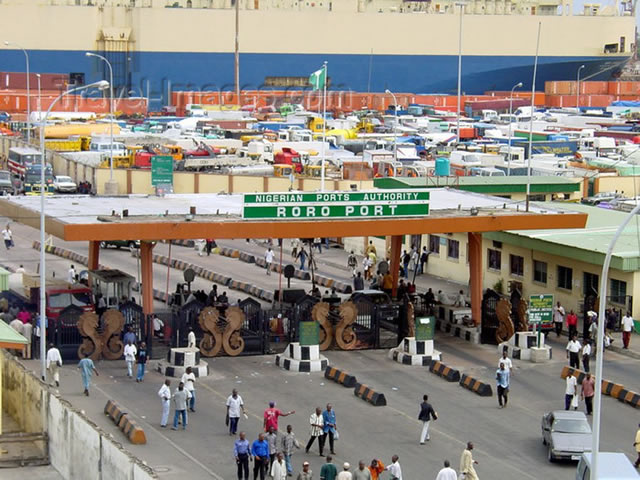The United States government, through its Office of the United States Trade Representative (USTR), has expressed significant concerns regarding Nigeria’s trade practices, citing them as persistent barriers to American agricultural and other exports. The USTR’s 2025 National Trade Estimate Report on Foreign Trade Barriers details a range of issues, from delays in import permit approvals for agricultural goods to complex customs procedures, restrictive import regimes, and inadequate intellectual property enforcement. These concerns underscore a long-standing tension between the two nations regarding market access and fair trade practices.
The core of the US complaint revolves around market access for American agricultural products. Despite repeated requests dating back to 2019, Nigeria has been slow to approve import permits for several categories of US food and agricultural goods. This delay, coupled with Nigeria’s limited capacity for efficient certificate review, goods inspection, and testing, results in protracted clearance delays, forcing traders to resort to informal channels, which further complicates trade and raises transparency concerns. The USTR report also criticizes inconsistencies in the application of sanitary and phytosanitary measures, creating confusion for exporters and potentially jeopardizing compliance with necessary regulations.
Beyond agricultural products, the USTR report highlighted broader trade barriers. Nigeria’s import regime, characterized by a complex web of tariffs and supplementary charges, raises the effective cost of imported goods significantly. While the average Most-Favored Nation applied tariff rate is 12%, agricultural products face a higher rate of 15.9%. Moreover, additional import fees on certain goods push the combined duty beyond 50%, and in some cases, exceeding the 70% limit set by ECOWAS. The report also criticizes Nigeria’s import bans on 25 product categories, including poultry, beef, and used vehicles, as protectionist measures hindering free trade.
The USTR report also focuses on systemic issues within Nigeria’s customs administration. These include allegations of corruption, reliance on outdated manual processing systems, and inconsistent interpretation and application of customs regulations. These factors contribute to lengthy clearance procedures, adding to the cost and complexity of importing goods into Nigeria. Although the Nigerian government approved a substantial modernization project in 2020, its implementation has been hampered by delays and legal disputes, perpetuating the challenges faced by importers.
Beyond customs procedures, the USTR report raises concerns about public procurement processes, intellectual property rights enforcement, and digital trade restrictions. American companies reportedly face difficulties accessing government contracts due to a lack of transparency and payment issues. Despite regulations requiring a “Certificate of ‘No Objection’ to Contract Award” from the Bureau of Public Procurement, government agencies often fail to comply with procurement guidelines. Furthermore, despite the passage of the Copyright Act of 2022 and other IP reforms, enforcement remains weak, leading to the proliferation of counterfeit goods. In the digital sphere, data localization requirements, while not strictly enforced, create uncertainties for businesses. The introduction of new taxes on digital services provided by foreign companies to Nigerian consumers has also drawn criticism.
The report also touches upon restrictions in Nigeria’s reinsurance and advertising sectors, citing prohibitions on foreign participation in oil and gas risk reinsurance and mandatory registration with the Advertising Regulatory Council of Nigeria as further impediments to foreign companies. On the issue of foreign exchange, the report acknowledges the Central Bank of Nigeria’s efforts to unify exchange rates and lift restrictions on access to forex for certain items, but notes that challenges persist. Companies continue to experience delays and denials in repatriating funds, a significant barrier to foreign investment. Furthermore, the report identifies Nigeria’s main ports, particularly Apapa in Lagos, as among the most expensive globally due to congestion, infrastructural deficiencies, and maritime insecurity.
In response to the USTR report, the Nigeria Customs Service (NCS) has refuted the claims regarding its manual operations, describing the assertions as unfair and misinformed. The NCS maintains that it has made substantial progress in automation and trade facilitation, citing initiatives like the Authorised Economic Operator program, the Advanced Ruling System, and the development of a new indigenous clearance software, the B’Odogwu Unified Customs Management System. The NCS also emphasizes its investments in non-intrusive inspection technologies, such as new scanners and geospatial intelligence tools. While acknowledging its role in implementing fiscal policies, the NCS insists it is not responsible for formulating them and remains committed to improving its operations in line with global standards. The Ministry of Industry, Trade and Investment, however, offered a more reserved response, pointing to previous statements made by the minister on the subject. The contrasting perspectives between the US and Nigerian governments highlight the complexity of the trade relationship and the need for further dialogue to address the underlying concerns.


